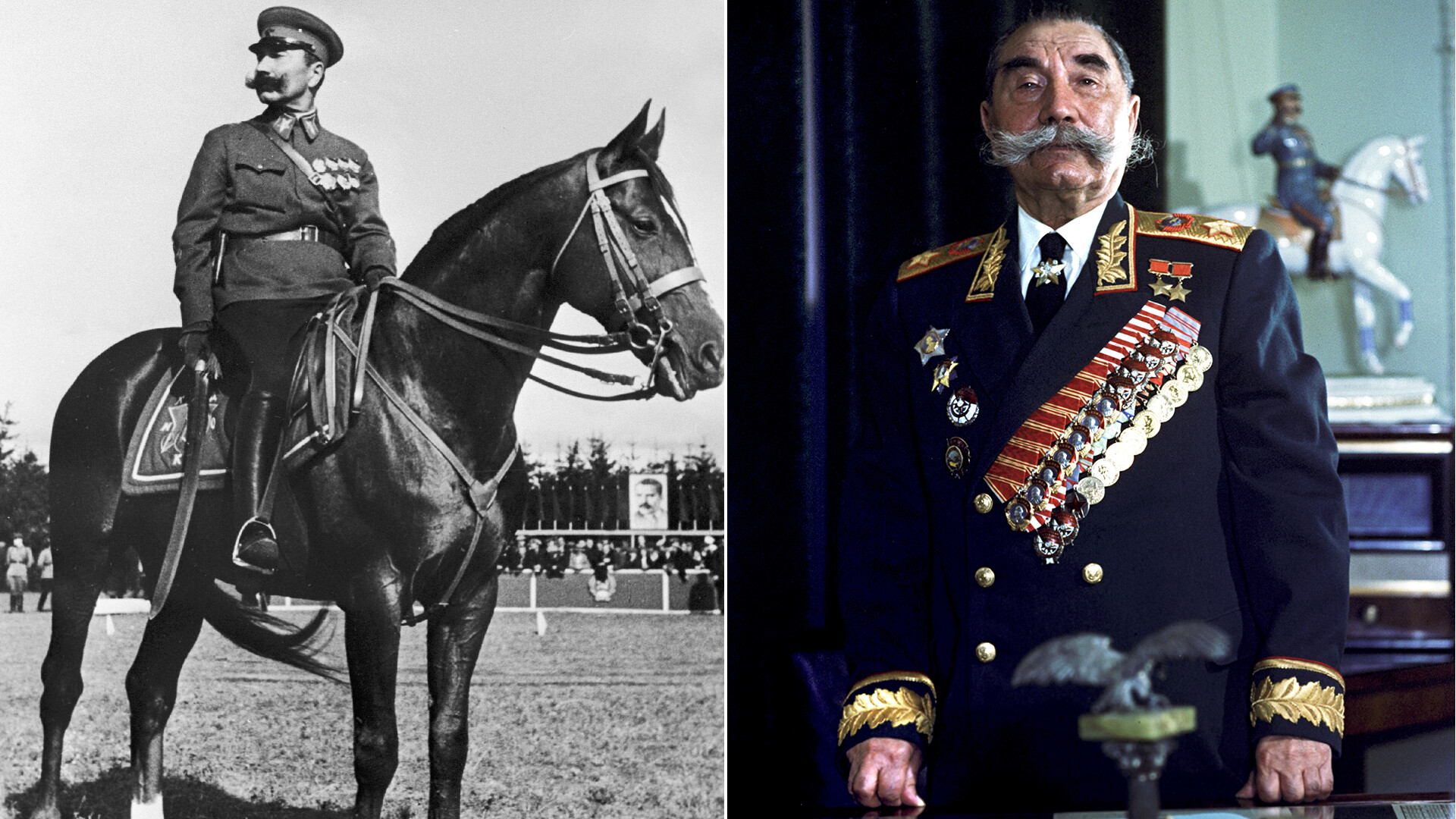
"He has a remarkable strategic instinct. He is brave to the point of recklessness, to the point of insane audacity. He shares with his cavalrymen all the most severe hardships and the gravest dangers. For him, they are ready to let themselves be cut to pieces," is how Vladimir Lenin spoke in 1920 about one of the most brilliant commanders of the Red Army, the would-be Marshal of the Soviet Union Semyon Mikhailovich Budyonny.
Born and raised in the south of the Russian Empire among the Don Cossacks (although he was not a Cossack himself), Budyonny felt confident in the saddle from his childhood. He went through the Russo-Japanese and World War I in the cavalry ranks. More than once did the command mark him with awards for the bravery shown in battles.
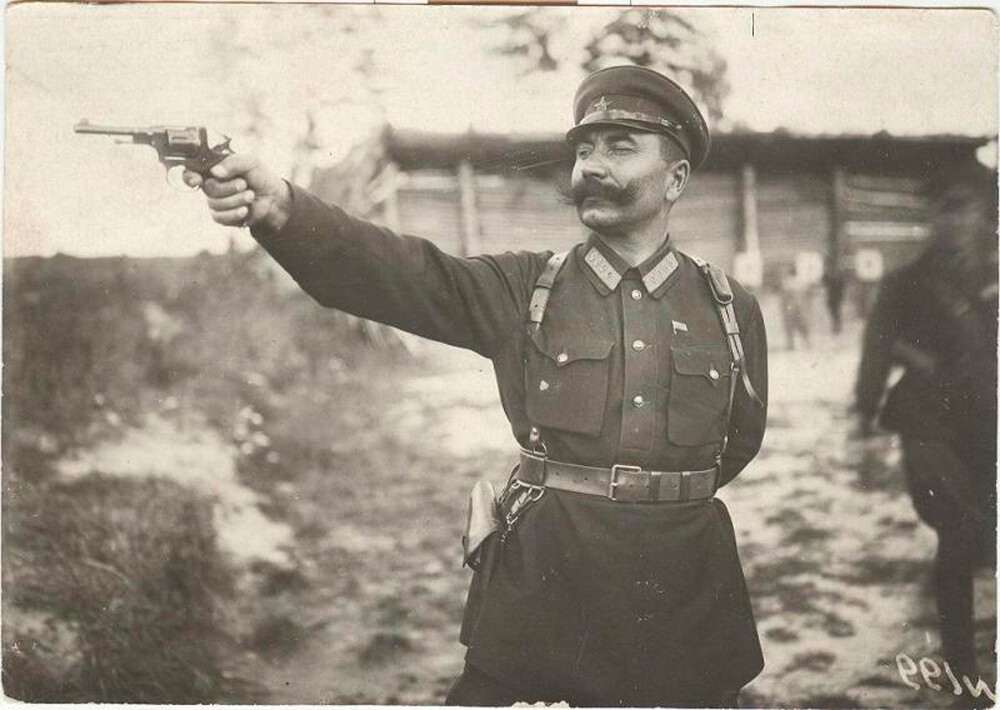
Semyon Budyonny in the 1920s.
МАММ/МDF/russiainphoto.ru/After the end of the first world conflict, Semyon Budyonny dreamed of acquiring a small horse factory, but the Civil War that broke out on the remnants of the Russian Empire made serious alterations to these plans. In the end, the former Wachtmeister of the tsarist army, who had never been an ardent revolutionary, found himself in the Bolshevik camp and, so, dedicated himself to the cause of fighting for the power of workers and peasants.
Among the Reds, the daring cavalryman-trooper quickly rose to the forefront. Being first the commander of a small revolutionary cavalry unit, by the Summer of 1919, he was promoted to the commander of the large First Cavalry Corps. It was Budyonny who in the battles near Voronezh in the fall of the same year defeated the main cavalry forces of the Whites under the command of generals Konstantin Mamontov and Andrei Shkuro.
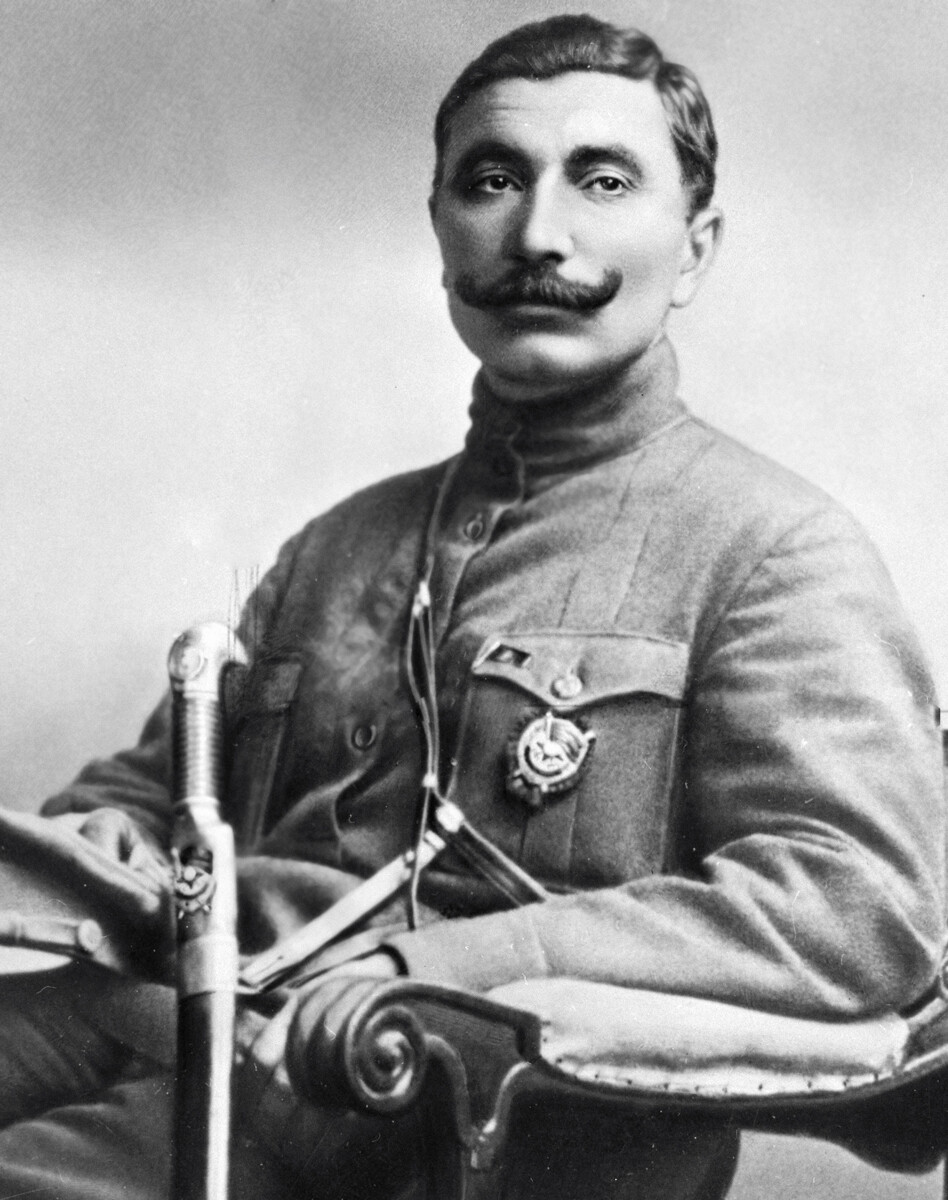
Semyon Budyonny during the Civil War in Russia.
SputnikOn November 19, 1919, on the basis of the cavalry corps, the First Cavalry Army was deployed, which became the most powerful and glorious army in the Armed Forces of the young Soviet Republic. Strengthened by rifle units, artillery, the armored train unit and aviation group, Budenny's cavalry successfully crushed the enemy in the Caucasus and the Crimea. It was no less effective in the first stage of the war against Poland, which ended not well enough for Russia, though.
Semyon Budyonny became one of the most beloved and popular commanders of the Red Army. The word ‘Budennovets’ was associated with bravery and courage and the winter headgear of military servicemen, which had the shape of the helmet of an ancient Russian warrior, was unofficially nicknamed ‘Budenovka’.
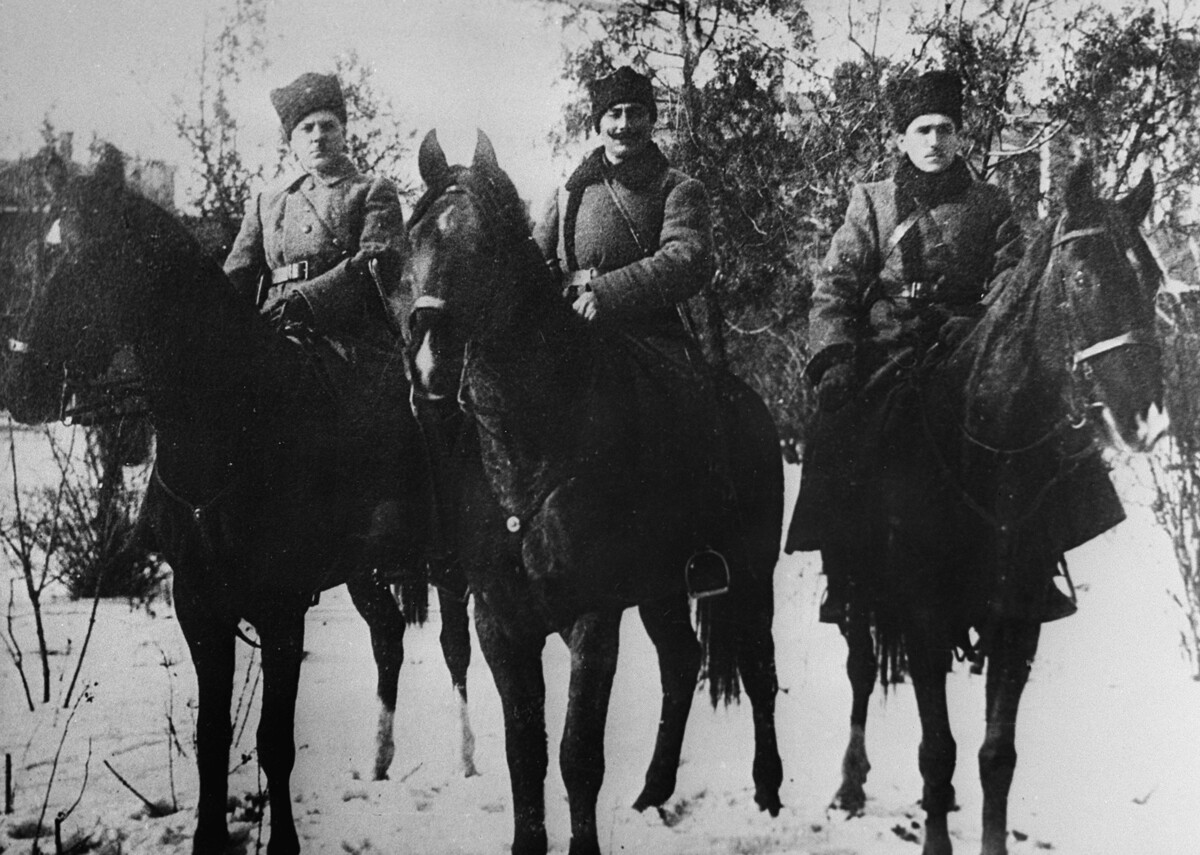
Commanders of the First Cavalry Army (from L to R): Kliment Voroshilov, Semyon Budyonny and Sergey Minin.
SputnikAfter the end of the Civil War, Semyon Mikhailovich fully devoted himself to his favorite pastime – horses: He took the post of inspector of cavalry of the Red Army, worked as editor of the ‘Horse breeding and horse farming’ magazine, as well as contributed to the creation of horse breeding factories. Budyonny opposed the cuts in the number of cavalry troops, while not denying the active mechanization of the Armed Forces.
On November 20, 1935, Semyon Mikhailovich was awarded the title of ‘Marshal of the Soviet Union’. During the mass repressions that soon began in the USSR, known as the ‘Great Terror’, three of the only five marshals in existence perished. Budyonny, however, safely survived this stint, together with his old comrade-in-arms in the First Cavalry Army - People's Commissar (Minister) of Defense Marshal Kliment Voroshilov.
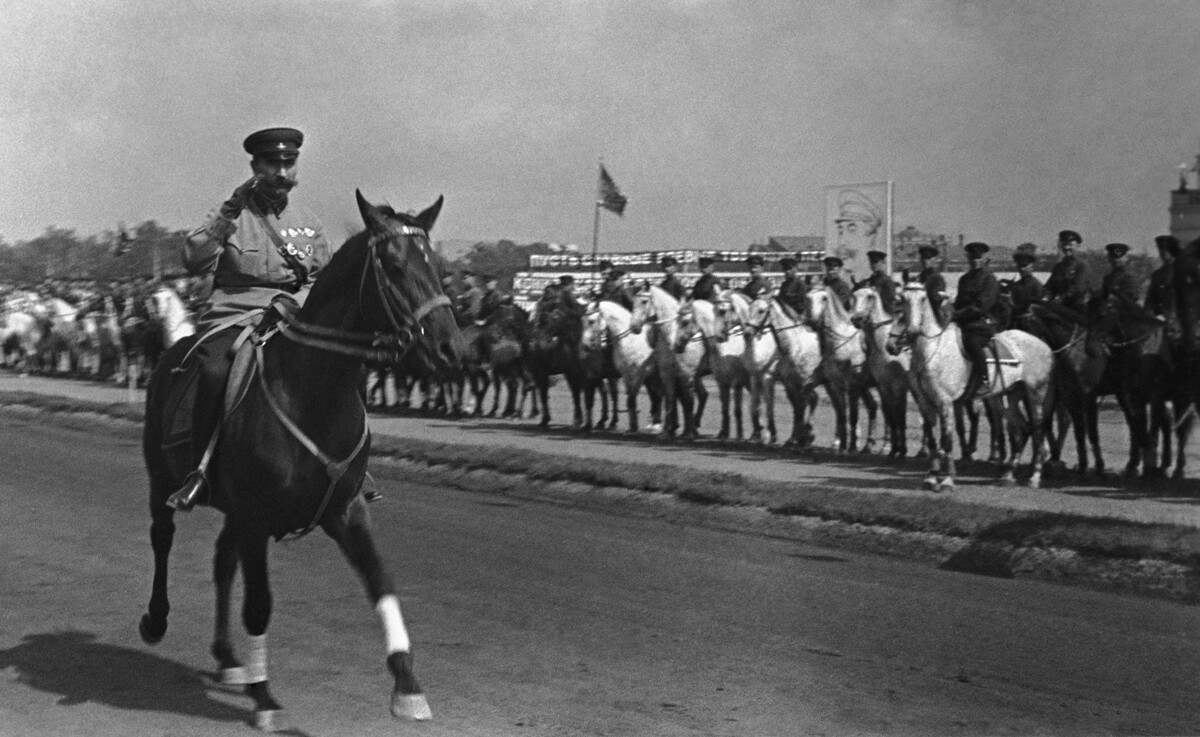
Budyonny taking a parade of participants of the fourth All-Union equestrian competitions of the Red Army in 1935.
TASSThe country's chief cavalryman stayed alive, due to an almost complete lack of political ambition and dislike of cabinet intrigues. In addition, Semyon Mikhailovich was a pragmatic and far-sighted man – having once sided with Stalin, he, like Voroshilov, remained boundlessly loyal to him. The ‘Father of peoples’ knew this and ignored all denunciations that his "friend and comrade" Budenny was involved in any conspiracies.
Semyon Mikhailovich, in turn, was forced to act in line with the policy of the authorities and support all of the leader's initiatives. On June 11, 1937, as a member of the Special Judicial Presence of the Supreme Court of the USSR, he passed a death sentence on Marshal Mikhail Tukhachevsky and a number of high-ranking Soviet military commanders for participation in a "military-fascist plot".
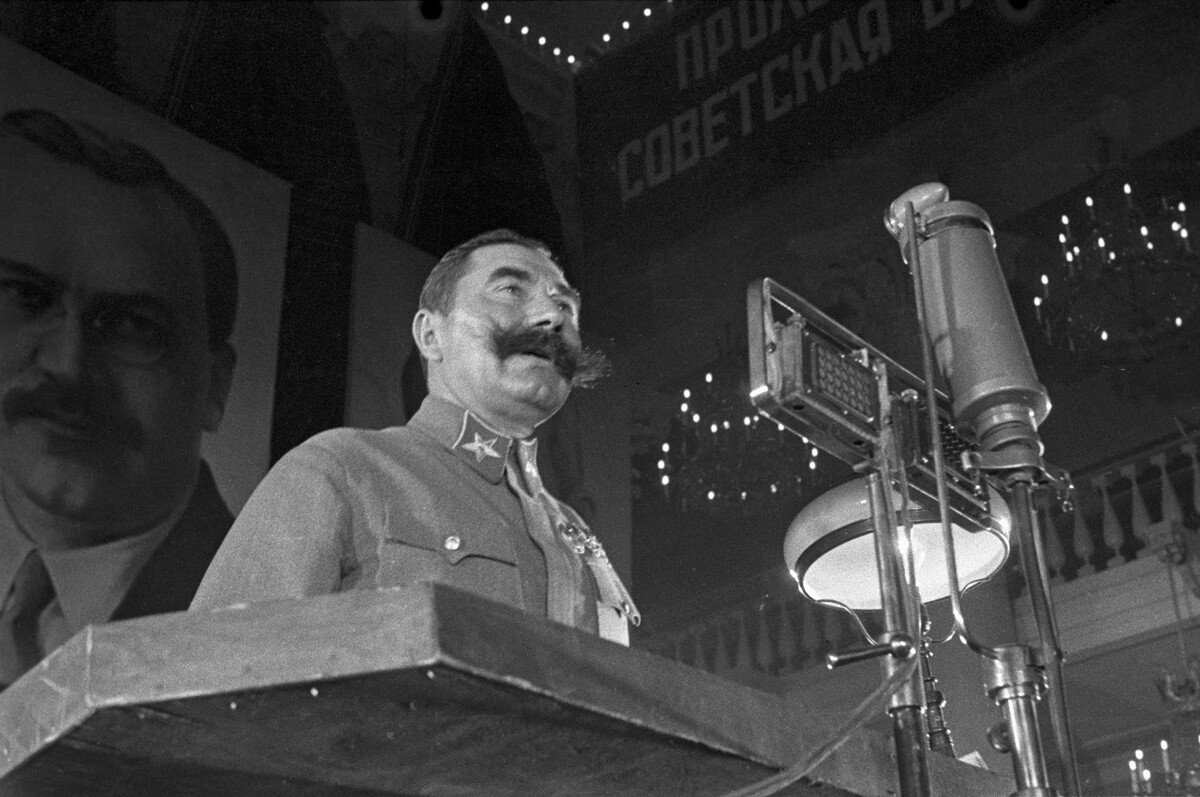
Budyonny making a speech at the Column Hall of the House of Unions, 1939.
Anatoly Garanin/SputnikAt the beginning of the war against Nazi Germany on July 10, 1941, Budyonny was appointed commander-in-chief of the troops of the South-West and was given the task to hold Kiev, whatever it took. In connection with the emerging danger of his forces being encircled, Semyon Mikhailovich began to ask the Supreme Command to allow him to withdraw the troops to new lines, but was invariably refused. On September 12, he was dismissed from command as a "panicker" and, three days later, the Germans closed the ring around the four Soviet armies, which had defended the capital of Soviet Ukraine.
Later, Budyonny was in charge of the Reserve Front and the troops of the North Caucasus front, but failed to ensure effective management of large operational-strategic joint forces in constantly changing circumstances. From 1943, Marshal was no longer involved in direct command of troops. Thus, in the virtually decorative position of commander of the Red Army cavalry, he was engaged in the formation of new cavalry units, having nothing to do with combat operations.
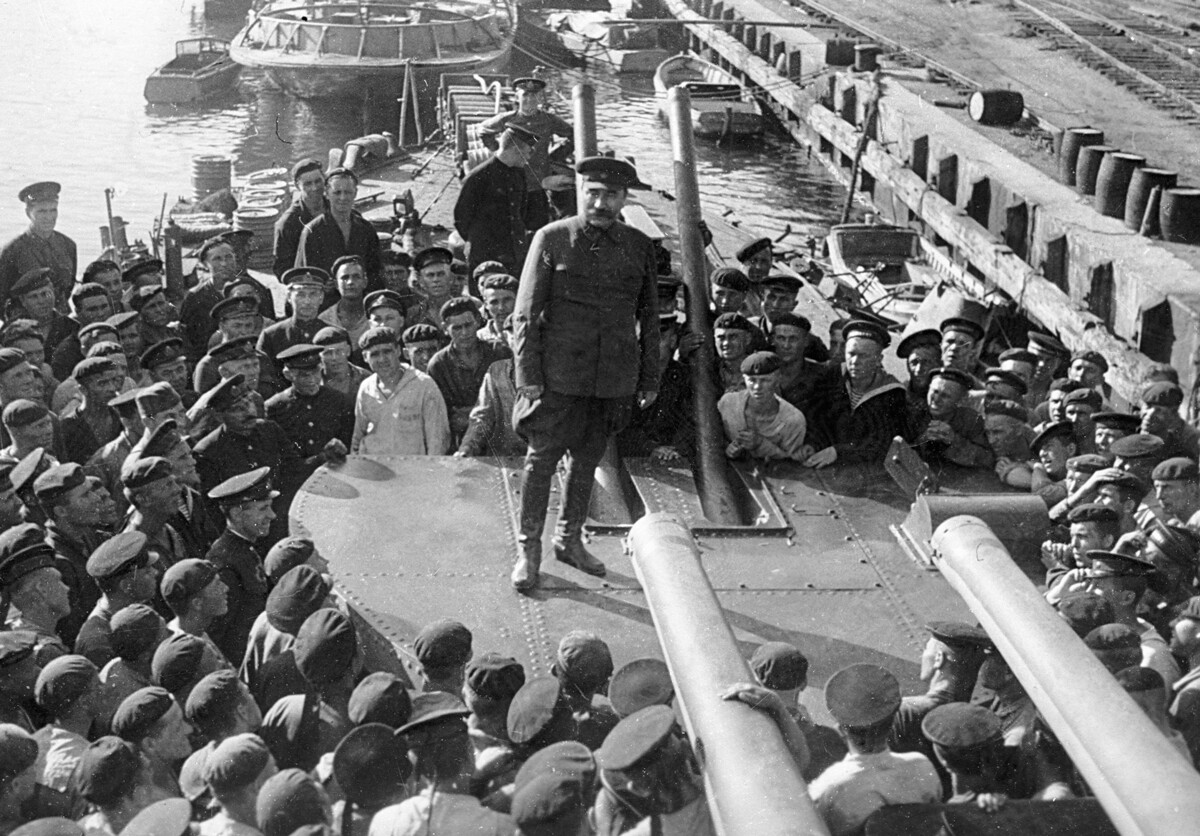
Marshal Budyonny in 1942.
Alexey Mezhuev/SputnikIn the post-war time, Semyon Budyonny held the position of Deputy Minister of Agriculture of the USSR on horse breeding and horse farming and wrote more than 70 works on the subject. Under his editorship, a monumental five-volume book ‘History of the Horse’ was published. In 1948, the Soviet Union developed a breed of horses named ‘Budennovskaya’ in the marshal's honor.
As before, the marshal had little interest in politics, although in 1954, during one of the feasts, he allowed himself a careless critical remark about Nikita Khrushchev. Budyonny's subsequent disgrace, however, did not last long. At the same time, Semyon Mikhailovich never spoke negatively about his patron Stalin, even after the latter’s "cult of personality" was debunked.
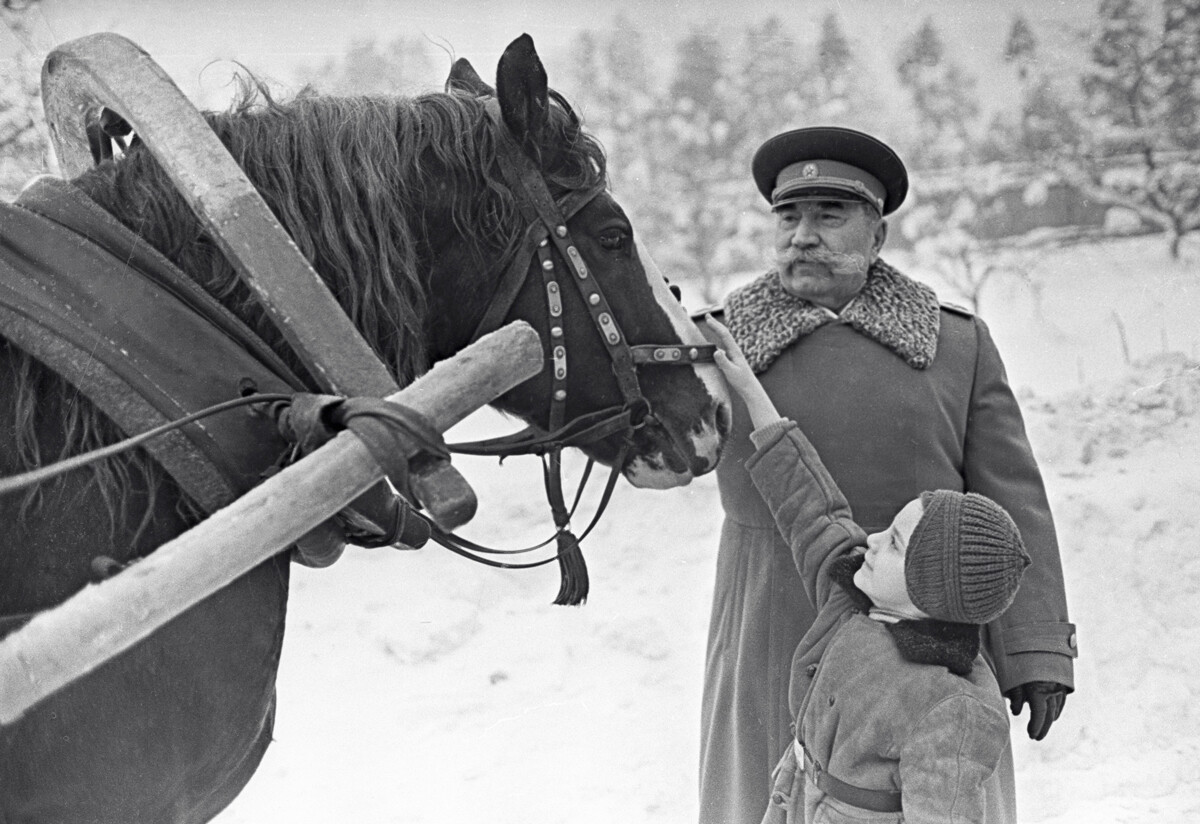
With his grandson Alyosha.
Vasily Malyshev/SputnikIn the last years of his life, Budenny was engaged in writing memoirs about his service in the First Cavalry Army and participated in numerous meetings with Soviet youth, for whom he was a true legend of the Civil War.
Semyon Mikhailovich died in 1973 aged 90. Even as an old man, the renowned cavalryman continued to ride his Budennovsky stallion called ‘Sophist’ almost until his death.
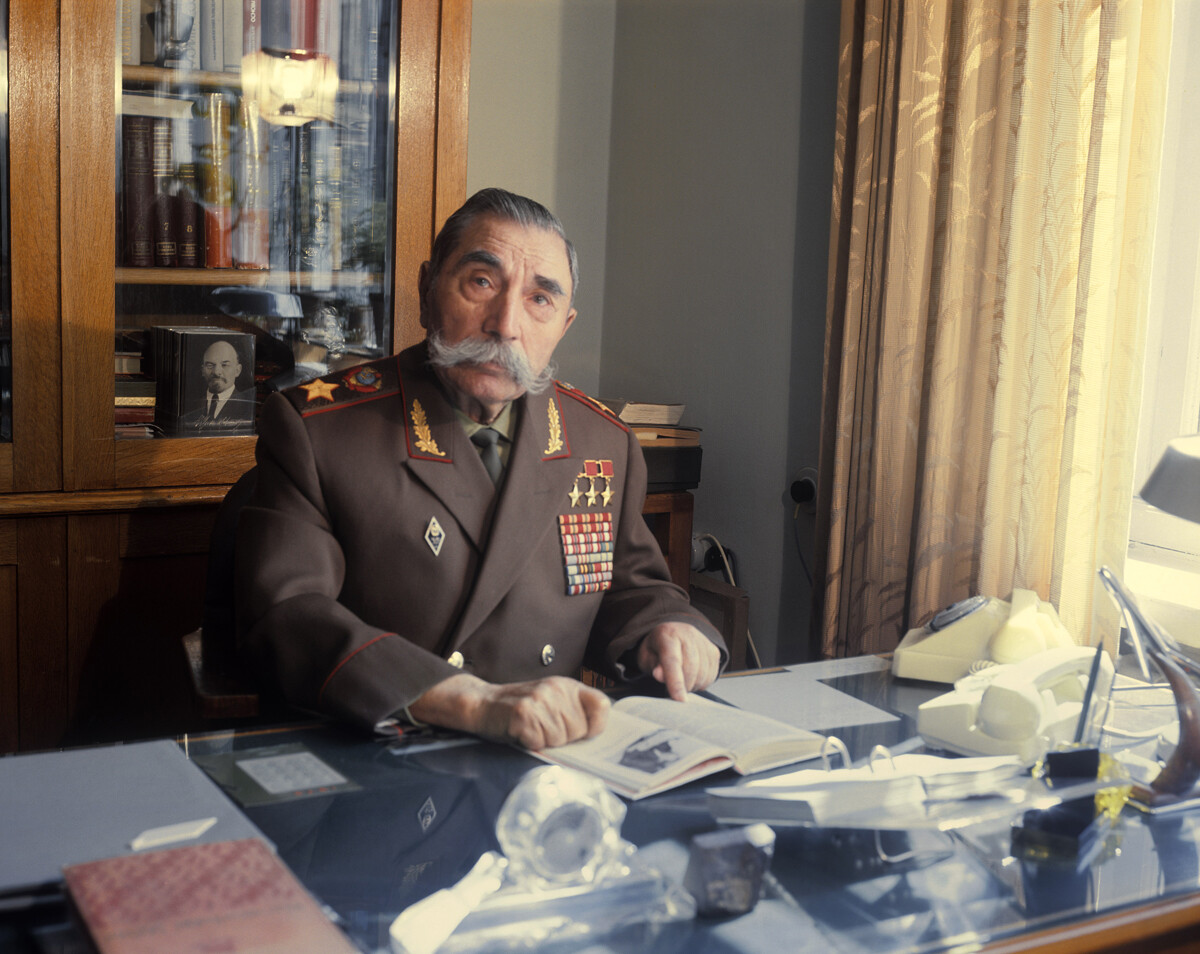
Marshal Budyonny in 1973.
Vladimir Savostyanov/SputnikIf using any of Russia Beyond's content, partly or in full, always provide an active hyperlink to the original material.
Subscribe
to our newsletter!
Get the week's best stories straight to your inbox